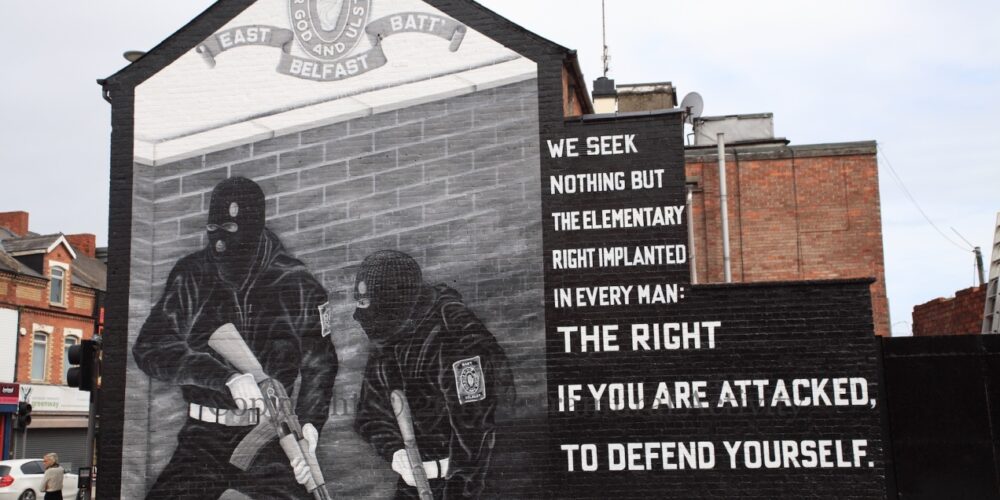In a personal interview printed in the Irish Times on 25 September the present leader of the DUP proclaimed that he was a “Mourne man” and went on to say that he has neighbours who carry an Irish passport while he carries a British passport, that they live on the same road and share the same townland. He talked about how he was a former UDR (Ulster Defence Regiment) solider.

I too am a Mourne man. I was born in what was then a hospital in Kilkeel, the DUP leader’s home turf, which then became an RUC station during the long war in the Six Counties.
Unfortunately the regiment the DUP leader was in would lead the readers of the Irish Times to think that they were a nice little regiment, and yet they were, in this writer’s opinion, a bunch of thugs intent on giving anyone with a hint of republican politics a hard time. We went to work with these thugs, and come any night when one was out socialising there they were, with their rifles and their sectarian abuse, hassling us each weekend night, or whatever mood they were in on a particular day, and at the same time creaming it in with all their part-time work and extra money; how they would chase you home at night threatening you and, on at least one occasion, sticking a gun into this writer’s mouth.
I knew this so-called solider well. I recall vividly the Down team being stoned by loyalist thugs in Kilkeel as they brought home the Sam Maguire Cup in September 1991.
Aye, good neighbours, and yet underneath all the spin the deep-seated sectarianism is alive and well, and still is today.
The threat in another article in which he was quoted as saying, “It is little wonder there has been civic unrest in Northern Ireland as unionists fearful about the future seek ways to register their frustration,” is typical of what we have heard over many decades.
Recently the DUP leader tried to push the Irish state into going along to a church ceremony celebrating the creation of a partitionist state based on religious and racial grounds, as its founders proudly proclaimed, which led up to the events of 1921, along with church leaders. The church leaders, as much as the politicians, sat quietly for many decades, playing along with this rotten debacle (bar a few notable exceptions).
The president of Ireland saw through this “church event” and stood against this push; but we have Fine Gael and Fianna Fáil going along with this “two-nation theory,” as exposed in an article in Socialist Voice last year (Unionism redefined—but partition remains), which said that “the ‘two-nations theory is the official policy of the ruling class in the 26 Counties. This is not a recent development, but it is worth noting that during the hunger strikes, despite the Irish government disowning the republicans’ demands, it would have been heresy to suggest that the ending of partition was not a worthy goal.”
A united Ireland is a worthy goal, one in which the CPI seeks to play a major part, by appealing to the working class not to fall for the clatter of noise coming from those who seek to represent you but instead to unite the working class, and we shall overcome and create a 32-county Ireland based on the needs of the many.






